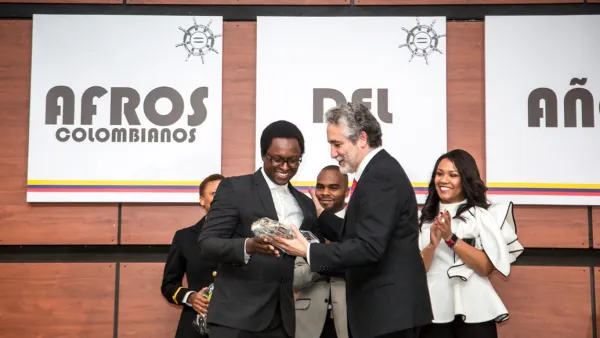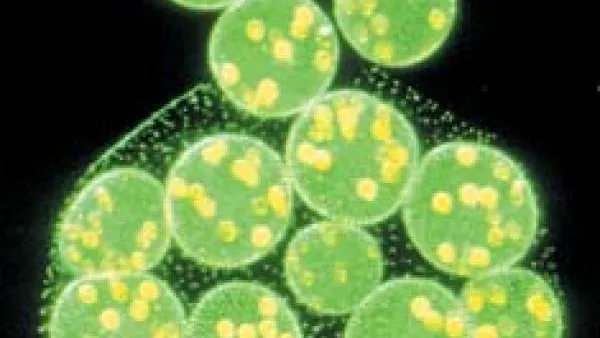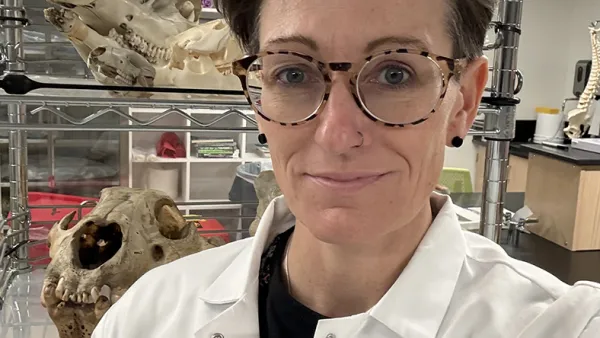Washington University graduate student Jhan Salazar was recognized by the Colombian organization Color de Colombia as the "Afro-Colombian of the year" in the Youth category in a nationally televised ceremony in Colombia on December 2, 2019. The event was sponsored by El Espectador, a major newspaper in Colombia.
The award ceremony, which turned 10 this year, recognizes the best among the Afro-Colombian community in 13 categories, including science and technology, sports, music and arts, and others. Salazar won in the youth category.
The award celebrates Colombia’s rich diversity. It aims to bring awareness to the accomplishments of the Afro-Colombian people, who are the smallest racial minority in Colombia.
“Jhan is the perfect embodiment of this award. He managed to succeed while facing strong racial and economic challenges. Nevertheless, at this early stage in his career, he has already has shown exceptional potential. For example, he was not only able to attend a prestigious Colombian university on a full-ride scholarship thanks to his intellectual ability but has also since engaged in productive collaboration with scholars from three different universities outside of Colombia. This is not easy to do for *any* Colombian, even for those from racial majorities and wealthier backgrounds. It is clear to me that he deserves this honor and that he will be a tremendous inspiration for those who come behind him,” remarked Carlos Botero, assistant professor of biology, who encouraged Salazar to apply to Washington University and continues to support his graduate career as a mentor.
As an undergraduate student at Universidad Icesi, a prestigious university in Cali, Colombia, Salazar wrote his thesis and published his findings in Evolution on how physiological traits evolve in Anolis lizards living on the American mainland (North, South and Central America) compared to the islands (Greater Antilles, Lesser Antilles, Great Bahama Bank, Pacific islands). In collaboration with his undergraduate mentors, Gustavo A. Londoño and Maria del Rosario Castañeda, and Martha M. Muñoz, assistant professor at Yale University, Salazar found that some physiological traits (such as cold and heat tolerance) evolve faster in mainland anoles.
Now as a graduate student he wants to know why.
Salazar is a first-year Division of Biology and Biomedical Sciences (DBBS) student in the Ecology, Evolution, and Population Biology Program. He is currently rotating through different labs and plans to join the laboratory of Dr. Jonathan Losos next year.
When asked what this award means to him, Salazar was initially speechless.
“I was not expecting to win this award. It was an honor to receive it. Because I was born in a really poor town in Colombia, I never expected to come to the US. I have come to the US three times to three different universities, and now I am doing a Ph.D. in the US. How did I do that?” smiled Salazar.
“I was not expecting to win this award. It was an honor to receive it. Because I was born in a really poor town in Colombia, I never expected to come to the US. I have come to the US three times to three different universities, and now I am doing a Ph.D. in the US. How did I do that?” smiled Salazar.
In his acceptance speech, he encouraged the other winners and nominees to continue being an example to the Afro-Colombian youth who are trying to follow in their footsteps.
“We should tell them that if we can, they can,” said Salazar.




